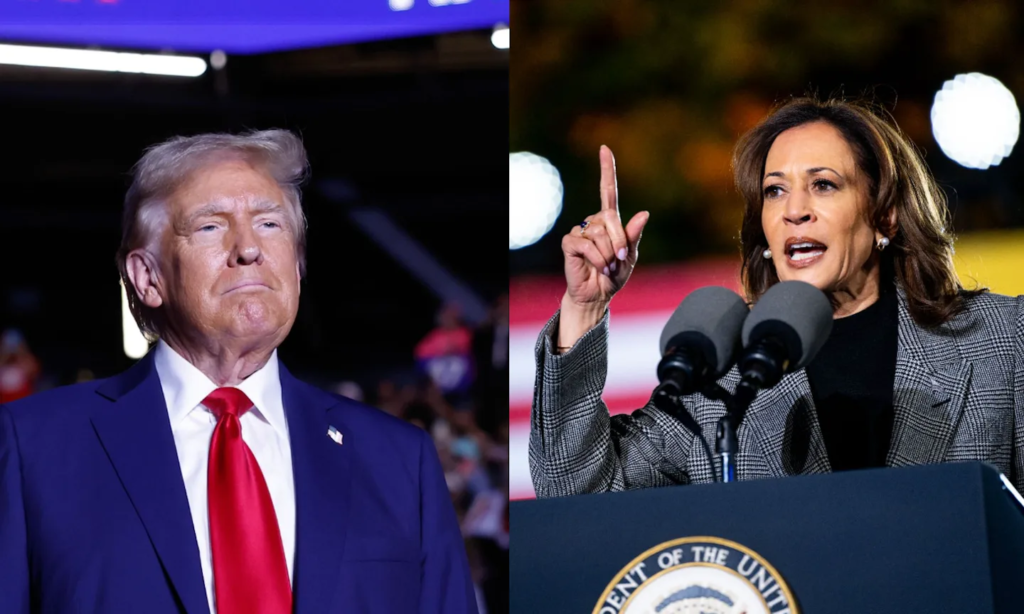Stay updated on the top economic and personal finance issues in the upcoming election with this comprehensive guide. Discover the promises made by Vice President Kamala Harris and former President Donald Trump as they compete for the highest office in the nation.
While both candidates aim to lower prices and combat inflation, the direct impact of presidential actions on these issues remains uncertain. Inflation rates have already shown a decrease from their peak during the pandemic.
Trump:
-
Implement tariffs on imports. Trump’s proposal includes tariffs ranging from 10% to 20% on foreign imports, up to 60% on Chinese imports, and 100% to 200% on Mexican automobile imports. However, experts suggest that these tariffs may lead to increased prices in the US.
-
Work on lowering gas prices. Trump’s plan involves increasing oil and gas production on federal lands. However, the direct impact on gas prices is limited as they are influenced by global market forces.
-
Propose changes to the Federal Reserve. Trump aims to bring the Federal Reserve under presidential control, potentially impacting the credibility of the central bank in making interest rate decisions.
-
Cap credit card interest rates at around 10%. Trump’s proposed cap on credit card interest rates would require congressional approval and is aimed at reducing the current high average rate of 21.51%.
Stay informed with the latest investing news
Get access to the latest financial news and how it impacts your finances by creating a BW account.
Harris:
-
Enforce regulations against price gouging. Harris plans to introduce rules that would prevent corporate grocers from arbitrarily increasing prices, though this ban would need congressional approval.
-
Reduce prescription drug expenses. Harris aims to extend a $35 cap on insulin and a $2,000 cap on out-of-pocket costs for seniors to all Americans, in addition to making it easier for federal programs to negotiate drug prices.
-
Rise the minimum wage. Harris supports increasing the federal minimum wage to at least $15 per hour, a significant raise from the current $7.25 rate that has remained unchanged since 2009.
Tax cuts and credits are key proposals that would directly impact consumers.
Trump:
-
Extend tax cuts from the 2017 Tax Cuts and Jobs Act. Trump’s plan includes extending tax cuts that are set to expire next year, covering estate and individual income taxes.
-
Replace personal income taxes with tariffs. Trump’s new proposal involves implementing a 10% across-the-board tariff on foreign imports, particularly from China.
-
Decrease the corporate tax rate by one percentage point. Trump aims to reduce the corporate tax rate from 21% to 20%.
-
Introduce R&D tax credits for businesses. The proposed tax credits would allow businesses to write off 100% of expenses in the first year, including machinery and equipment.
Harris:
-
Increase taxes for the wealthy. Harris aims to raise the net investment income tax for individuals with incomes over $400,000, as well as increase the tax rate on long-term capital gains for those with taxable income exceeding $1 million.
-
Raise taxes for corporations.
-
Expand Child Tax Credit: Harris plans to enhance the Child Tax Credit to $6,000 for children under 1, $3,600 for ages 2-5, and $3,000 for older children.
-
Permanently extend the expanded premium tax credits for those who purchase health insurance through the health insurance marketplace.
-
Increase tax incentives for small businesses. Harris proposes raising federal tax incentives from $5,000 to $50,000 to stimulate the growth of new small businesses.
No tax on tips: Both candidates support exempting workers from paying taxes on their tips, though experts argue that this policy may not adequately address the needs of tipped workers.
While the candidates have outlined their healthcare proposals, details remain limited. However, both candidates have pledged to protect Medicare, with notable differences in their approaches.

